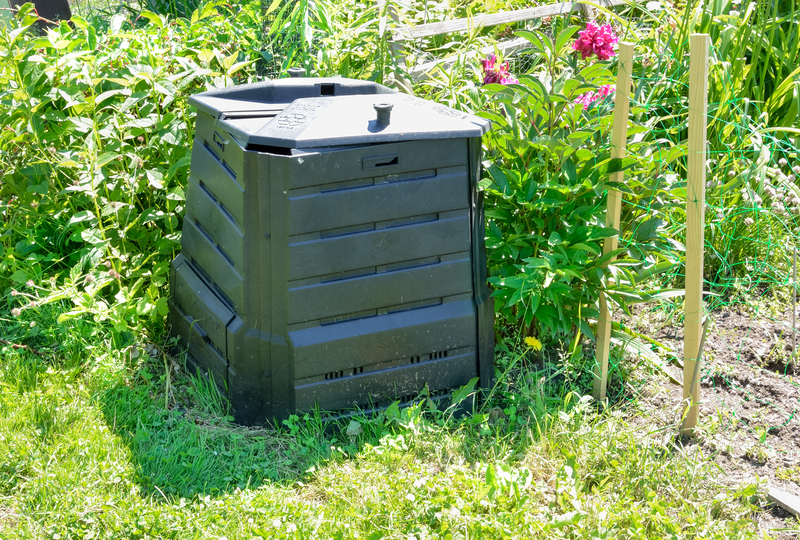Cleantech Waste Types for Renewable Energy Use
In an era where sustainability is at the forefront of global discussions, the concept of cleantech waste types for renewable energy use is gaining significant attention. As resources are continuously depleted and waste accumulates at an alarming rate, it's crucial to explore how cleantech solutions can transform waste into valuable energy. This article delves into various types of cleantech waste and their potential in the realm of renewable energy.
Understanding Cleantech and Its Relevance
Cleantech, or clean technology, refers to products, services, or processes that reduce waste and require as few non-renewable resources as possible. With the growing need for energy efficiency and environmental conservation, cleantech innovations are paving the way for sustainable development. Key areas of focus include minimizing pollution, efficient utilization of resources, and the conversion of waste into energy.
The Importance of Waste-to-Energy Conversion
The concept of converting waste into energy is not new, yet it has gained momentum in recent years due to the increased emphasis on sustainability. This practice not only helps in managing waste but also offers a reliable source of renewable energy. Here, we will explore some critical cleantech waste types that are driving the shift towards renewable energy sources.

Types of Cleantech Waste for Renewable Energy
1. Biomass Waste
Biomass encompasses organic materials such as plant and animal matter, which can be converted into energy through processes like combustion, gasification, anaerobic digestion, and pyrolysis. This type of waste is abundant and renewable, making it a critical player in the renewable energy sector.
- Combustion: Direct burning of biomass waste material to produce heat, which can be used to generate electricity.
- Gasification: A process that converts organic material into syngas, which can then be used to produce electricity or biofuels.
- Anaerobic digestion: This technique uses microorganisms to break down organic matter in the absence of oxygen, producing biogas as a byproduct.
- Pyrolysis: The thermochemical decomposition of organic material at elevated temperatures without oxygen, resulting in the production of bio-oil and syngas.
Biomass is a highly versatile waste type, making it an excellent candidate for energy production, particularly in rural areas where other forms of renewable energy might be less accessible.
2. Municipal Solid Waste (MSW)
Municipal Solid Waste, commonly known as trash or garbage, consists of everyday items discarded by the public. This waste type is diverse, comprising paper, plastics, metals, food scraps, and yard waste. Advanced technologies can convert MSW into energy, significantly reducing the volume of waste sent to landfills.
- Waste-to-Energy (WtE) Plants: Facilities that combust MSW under controlled conditions to generate heat, which produces steam for electricity generation.
- Plasma Gasification: An innovative method that uses plasma torches to convert organic waste into syngas, which can be utilized for energy.
Municipal solid waste, if managed appropriately, can not only contribute to energy generation but also plays a vital role in diminishing landfill footprints and associated environmental issues.
3. E-Waste
E-waste, or electronic waste, is made up of discarded electronic devices and components. With the rapid advancement and disposal of technology, e-waste has become a significant environmental concern. Cleantech companies actively research methods to recycle and recover valuable materials from e-waste, which can then be used for energy production.
- Material Recovery: Extracting precious metals and other useful materials that can be reused in the production of electronics or renewable energy systems.
- Pyrometallurgy and Hydrometallurgy: Processes that utilize high temperatures or chemical solutions to recover metals from e-waste, which can be repurposed in other industries, including clean energy.
By focusing on efficient waste management and recovery, e-waste can become a valuable resource for supporting various renewable energy applications.
4. Industrial Waste
Industrial waste includes a variety of materials that result from manufacturing processes, such as chemical byproducts, metals, and sludge. Through cleantech innovations, industrial waste can be transformed into renewable energy.
- Circular Economy Models: These models prioritize the reuse and recycling of waste materials in a closed-loop system, thus maximizing resource efficiency.
- Sludge-to-Energy: Treatment plants use anaerobic digestion to convert industrial sludge into biogas, which can be utilized to generate electricity.
Transforming industrial waste into energy not only conserves resources but also helps industries reduce their carbon footprint.

The Future of Cleantech Waste in Renewable Energy
With the increasing adoption of cleantech solutions in waste management and energy production, the future looks promising for cleantech waste types in the renewable energy landscape. Innovative technologies and strategic policy implementations will be crucial in facilitating this transition.
Challenges and Solutions
Converting waste to energy through cleantech involves several challenges, including technological limitations, high operational costs, and varying quality of waste materials. Overcoming these obstacles requires robust research and development, as well as collaboration between governments, industries, and academia.
Policy incentives and public awareness can play significant roles in boosting cleantech energy projects, ensuring widespread adoption and integration into existing energy systems.
Conclusion
As the global community seeks sustainable solutions to address environmental concerns, cleantech waste types for renewable energy use are becoming essential components of modern energy strategies. By leveraging the potential of biomass waste, municipal solid waste, e-waste, and industrial waste, society can progress towards a cleaner, more sustainable energy future.
It's imperative for policymakers, businesses, and individuals to recognize the value of these waste types and invest in technologies that transform them into viable energy sources. Such initiatives not only conserve natural resources but also contribute significantly to the reduction of greenhouse gas emissions, promoting an environmentally sustainable world.